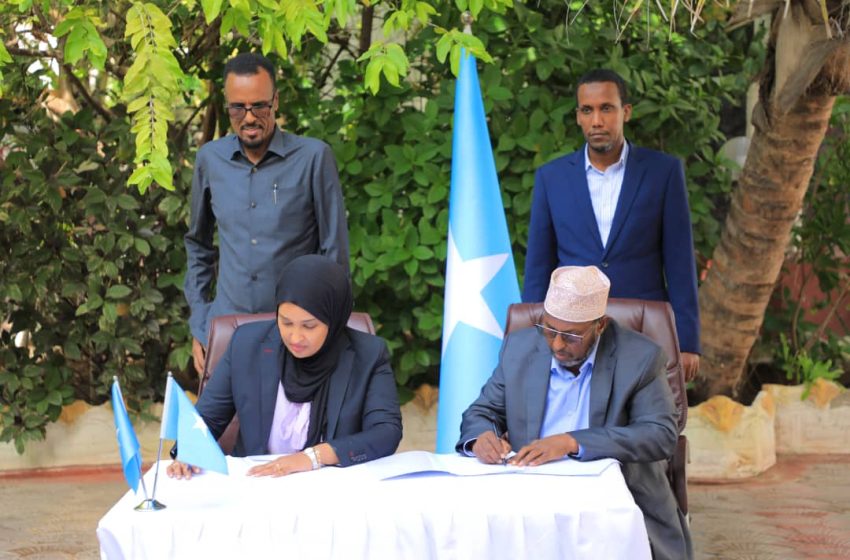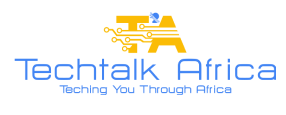
Hormuud Telecom Signs Partnership With Somalian Government
The Somali Ministry of Environment and Climate Change has signed a Memorandum of Understanding (MoU) with Hormuud Telecom, plus Salaam Somali Bank, BECO and Somgas. The Public Private Partnership will drive forward climate resilience projects in Somalia and contribute to the National and the East African Community’s Climate Change Policy.
The partnership strengthens the collaboration between parties to channel international climate finance into green projects in-country. It comes as the Green Climate Fund (GCF) committed $100m, set to be distributed in 2024.
The collaboration also emphasizes the significance of the private sector in providing the technological innovation and investment to support low-carbon growth, climate adaptation, and mitigation efforts, critical to realizing the Government’s Resilience and Recovery Framework.
This MoU sets the stage for future green projects that will help Somalia become a renewable powerhouse within the East African Community, harnessing the potential of its annual average 3083 hours of sunshine, and longest coastline in Africa.
H.E Khadija Mohamed Al-Makhzoumi, Somali Minister of Environment and Climate Change said: “We’re committed to building a climate-resilient Somalia – and this is a leap forward. By leveraging the strengths of the private sector and its unrivalled insights into local opportunities for sustainable development, we’re clearing the road ahead to address the pressing climate challenges our nation faces.”
Somalia and the East African region are on the frontline of climate change. Somalia is rated 185 on the Climate Vulnerability Index, with recurrent years of drought pushing it to the brink of famine in 2023. This was followed by November’s ‘once in a century’ floods, displacing over a million people. With a lack of infrastructure to mitigate climate shocks, government action, backed by the private sector, could not be timelier.
Hormuud Telecom and Salaam Somali Bank already play a crucial role in climate adaption. Hormuud Telecom is transitioning its infrastructure to use 100% renewable energy, currently 84% of its equipment currently operates on solar energy. Meanwhile, Salaam Somali Bank financed Somalia’s first solar panel plant, which brought renewable energy prices down by 25%, and launched a livestock insurance programme to mitigate the drought with the World Bank funded project ‘Drive Project’, implemented by ZEP-RE, which has reached over 100,000 pastoralists.
Mr. Shuayb Haji Nur Mohamed, Managing Director of Salaam Somali Bank commented: “Climate finance holds the key to unlocking resilience in a country like Somalia, on the frontlines of the climate crisis, and this MoU essentially puts that key in our hands. As The Banker magazine’s International Islamic Bank of the Year, we’re a trusted pillar of the community, with a deep understanding of the opportunities for investment into innovative, home-grown climate solutions.”
They also plays a role in disaster response. Through the Hormuud Salaam Foundation, it distributed USD $1mil in cash aid to affected communities following the November 2023 floods, and Hormuud Telecom rapidly developed an innovative early warning system, played as the dial tone on customers phones to alert people to the situation as it developed.
Mr. Ahmed Yusuf, CEO of Hormuud Telecom, said:“Sustainability is built into the bricks and mortar of what we do – our operations are driven by creating a better future for Somalis. This partnership allows us to leverage our extensive infrastructure and resources to power Somalia’s climate resilience initiatives and make real strides towards a sustainable tomorrow.”
The MoU will also raise climate impact awareness and promote climate-resilient practices, including tree planting. Partnerships with research institutions are also planned to enhance knowledge sharing, and to influence climate policy at an EAC regional level.
Whilst accessing GCF funds requires further accreditation, this partnership establishes a strong foundation for aligning local efforts with the broader EAC and international climate goals.


![Phishing and scams have increased in Africa. [Photo - Courtesy]](https://techtalk.africa/wp-content/uploads/2022/08/Phishing.jpg)
![Kaspersky researchers have found a new malicious campaign that developers need to be ware of. [Photo - Courtesy]](https://techtalk.africa/wp-content/uploads/2022/08/Kaspersky.jpg)
![LightWays is a fully enclosed, flexible ducting system ideal for protecting, segregating and managing fibre optic cables in the data centre environment. [Photo - Courtesy]](https://techtalk.africa/wp-content/uploads/2022/08/Siemon_LightWays.jpg)



